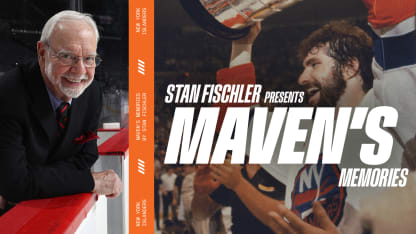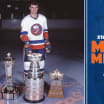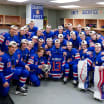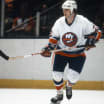It seems like only yesterday but it was 40 or more years ago.
That's when the Islanders' Four-Cup dynasty was built and, to this day, many of our bygone heroes still can vividly recall those exquisite and glorious moments.
For accuracy purposes in writing this memory piece, I relied on two historic volumes, one by Long Island author Greg Prato and the other by Minnesotan Ross Bernstein.
Bernstein's history, "Raising Stanley," has several contributions by Isles Hall of Famers. Prato's publication, "Dynasty" is as the title indicates -- oral history covering the four triumphant years.
Purely out of curiosity, I wondered which Islander name would first pop up in "Raising Stanley." Frankly, I was not surprised when it was CLARK GILLIES.
The Maven had known "Jethroe" since he was a rookie. There was no better story-teller than our left wing Hall of Famer.
Author Bernstein had asked Clark precisely what winning the Stanley Cup meant to him. Waxing lyrical, Gillies swung into the mood.
"The Stanley Cup is the holy grail. It's why we play the game. It's the ultimate accomplishment in hockey. For better or worse, once you make it to 'The Show' your career is ultimately judged by whether or not you were able to win it."



















